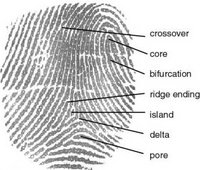 Interesting that Germany has more respect for privacy than the U.S. does:
Interesting that Germany has more respect for privacy than the U.S. does:
Government surveillance of personal computers would violate the individual right to privacy, Germany’s highest court found Wednesday, in a ruling that German investigators say will restrict their ability to pursue terrorists.Although apparently Germany also has lazy cops who think spying on individuals is their birthright, just like in the U.S. Not regular police, mind you, butThe Karlsruhe-based Federal Constitutional Court said in a precedent-setting decision that data stored or exchanged on a personal computer is effectively covered under principles of the constitution that enshrine the right to personal privacy.
“Collecting such data directly encroaches on a citizen’s rights, given that fear of being observed … can prevent unselfconscious personal communication,” presiding judge Hans-Juergen Papier said in his ruling.
— Court Shoots Down Computer Surveillance, By MELISSA EDDY, Associated Press Writer, 27 Feb 2008
…secret services’ ability to use virus-like software to monitor suspected terrorists’ online activity.The court rightly said suspicion is not enough:
“Given the gravity of the intrusion, the secret infiltration of an IT system in such a way that use of the system and its data can be searched can only be constitutionally allowed if clear evidence of a concrete threat to a prominent object of legal protection exists,” Papier said.And a judge has to approve it.
Now that’s risk management.
-jsq





